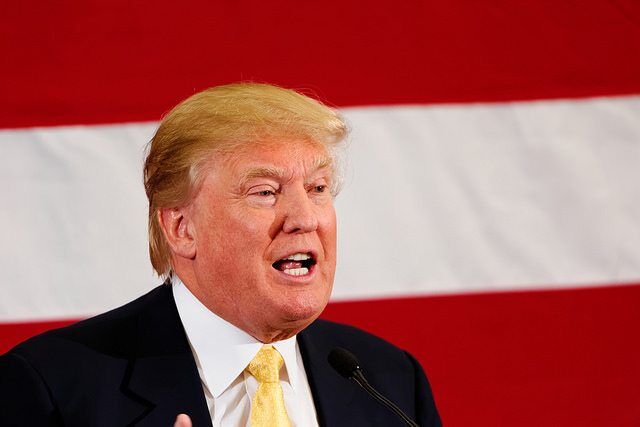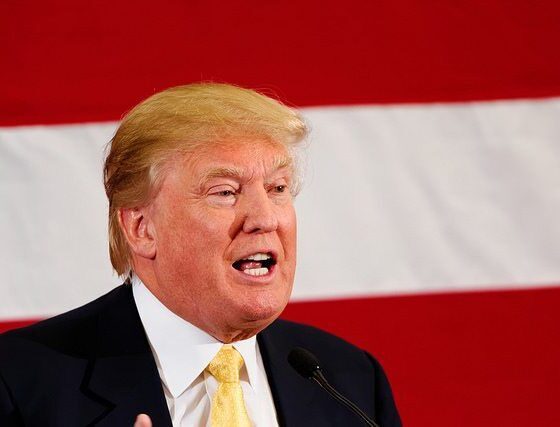

Economy
Robeco Advise Investors Post US Election Result
Robeco suggest that investors should adopt a defensive stance towards stocks following the managers.
“Going in to the US elections, we considered US equities to be fully priced,” says Mark Glazener, Head of the Global Equity team and fund manager of the Robeco NV fund. “In terms of growth we expected a muddling-through scenario, as indicated by business confidence indicators. The ISM manufacturing PMI in the US had dipped below 50 in August and had since recovered, without showing a clear direction.”
“The Senate that seemed to be a comfortable win for the Democrats now remains Republican. The House, as expected, stays Republican as well, and the Presidency against all odds goes to Donald Trump. This is a landslide victory for Trump and the Republicans.
“As expected, equities around the world are under pressure. Equities and the economy are based on confidence and confidence will be fragile.”
“Investor concerns focus on Trump’s anti-trade and immigration policies. If he continues his rhetoric on protectionist trade policy, this might be the trigger for a long awaited recession in the US economy. Trump’s policies are partly unknown and his team even more.”
Winning short-term position
“A defensive stance will be the winning position for the short term. A weakening US dollar will dampen the fall of US equities. The health care sector will show a sigh of relief as Clinton’s drug pricing plans will now be off the table. Trump has promised a big infrastructure spend, so building-related names will do well. The big question is what will financials do? The first indications are that the 10-year bond yield in the US is declining, as a symbol of a flight to safety. This will not play in to the cards of banks.”
“The initial reaction will therefore be negative. Whether this will continue all depends on the stance of President-elect Donald Trump and the choice and stability of his team. If the new policy will circumvent a protectionist trade stance and aims for market-friendly practices, significant policy stimulus, tax reforms and fiscal stimulus, the final outcome will not be that bad. A first signal of this will be the reparation of relations with the Republican Party, which now controls policy with a majority in the House and the Senate.”
Emerging markets ‘stunned’
“A Trump victory does not bode well for emerging markets equities, and we expect a first negative market reaction and overall shorter term volatility, as markets will be stunned by the results of the US elections,” says Fabiana Fedeli, Senior Portfolio Manager for Emerging Markets Equities.
“In the short term we could see further US dollar weakness. However, in the longer term, if Trump sparks a risk-off scenario in equities, assets could flow back to the US, and this perversely would have a positive impact on the US dollar versus many other currencies, including those of emerging markets.”
“Across all emerging markets we expect Mexico to show the most negative reaction, and this should affect first and foremost the country’s very liquid currency market, triggering a sharp decline in the peso, and secondly the equity market. After the Mexican peso, the Brazilian real is the most exposed currency given the country’s dependency on foreign capital flows,” says Fedeli.
“Eventually, we expect the overall volatility across most emerging equity markets to subside once the market focuses on fundamentals. That said, we are likely to see occasional volatility spikes and market jitters ahead, triggered by any instances of Trump’s incendiary rhetoric on foreign politics or any steps of his administration in favour of protectionist measures.”
US not-so dominant
Fedeli says the reason for expecting a normalisation across most emerging markets is that, notwithstanding the new administration’s protectionist stance – Trump is against the Trans-Pacific Partnership and wants to increase tariffs for Chinese goods – the US is not as dominant as a trading or investment partner as one might think. First, it accounts for 12.8% of emerging markets exports, down from 14.9% ten years ago. Second, across most emerging markets the role of US Foreign Direct Investments has diminished considerably since before the Global Financial Crisis.
“The exception to this is Mexico, which is far more dependent on the US as a trading partner, a source of investment flows, as well as a destination for its migrant workers,” says Fedeli. “If a Trump administration stays true to its campaign statements of renegotiating or withdrawing from the NAFTA agreement and deporting all undocumented migrants living in the US, the Mexican economy could be significantly damaged.”
“Given that exports to the US account for about 28% of Mexican GDP, US Foreign Direct Investments for 1.4% and remittances from the US account for approximately 2.1% – although not all the remittances are from undocumented workers – markets would perceive a Trump win as a disaster for the Latin American country, and the impact on its currency and equity market would last longer. In addition to NAFTA, Trump indicated that he wants to revise other trade agreements. In Latin America, other exposed countries are Peru and Colombia as they both signed Free-Trade Agreements with the US.”
NAFTA withdrawal: a game changer
“While a withdrawal from NAFTA and other agreements would be a game changer for Mexico and upset Andean countries, for other emerging markets the focus of US companies on their bottom line could to some extent offset any protectionist measures a Trump government would implement. This is due to an improvement in labour cost competitiveness with the US,” Fedeli says.
“Trump has promised a 38% increase in US minimum wages at a federal level. While only a small number of workers are subject to federal minimum wages, there would likely be a corresponding increase in minimum wages in some states. In addition, in Trump’s case the increase would be paired with a loss of cheap jobs should the undocumented migrant workforce, which is estimated at 7% of the total US workforce, be deported. An upward impact on wage growth would also occur if overall immigrants making up 17% of total US workforce were to be reduced by more cumbersome visa procedures. This could push some US exporters to move production outside of the country.”
Foreign policy: a worry
“All that said, while the direct economic impact of a Trump presidency on most emerging markets (except Mexico) would be relatively contained, a key concern is Trump’s potentially damaging impact on US foreign policy and, as a consequence, on world geopolitics. We live in a world of delicate political balances, such as the UK Brexit, the Syrian conflict and Russia-Western world hostility, the rise of a more authoritarian and nationalistic Presidential power in China, the territorial disputes in the South and East China Seas.”
“The US still fills an important role within many of these delicate balances and Trump’s commentary on foreign policies would bring us in unchartered waters. Importantly, Trump’s tendency to ‘shoot from the hip’ when it comes to foreign policy commentary, would make him the classic dancing elephant in the crystal shop.”
But there may be one potential silver lining to this, she says. “US Presidents don’t have a particularly good record of keeping their campaign promises, and therefore many of Trump’s explosive campaign pledges might end up being difficult to implement in practice. However, with a Republican majority both in the Senate and in the House of Representatives, the silver of the lining might prove to be not as shiny.”


 Environment11 months ago
Environment11 months agoAre Polymer Banknotes: an Eco-Friendly Trend or a Groundswell?

 Features10 months ago
Features10 months agoEco-Friendly Cryptocurrencies: Sustainable Investment Choices

 Features11 months ago
Features11 months agoEco-Friendly Crypto Traders Must Find the Right Exchange

 Energy10 months ago
Energy10 months agoThe Growing Role of Solar Panels in Ireland’s Energy Future





























